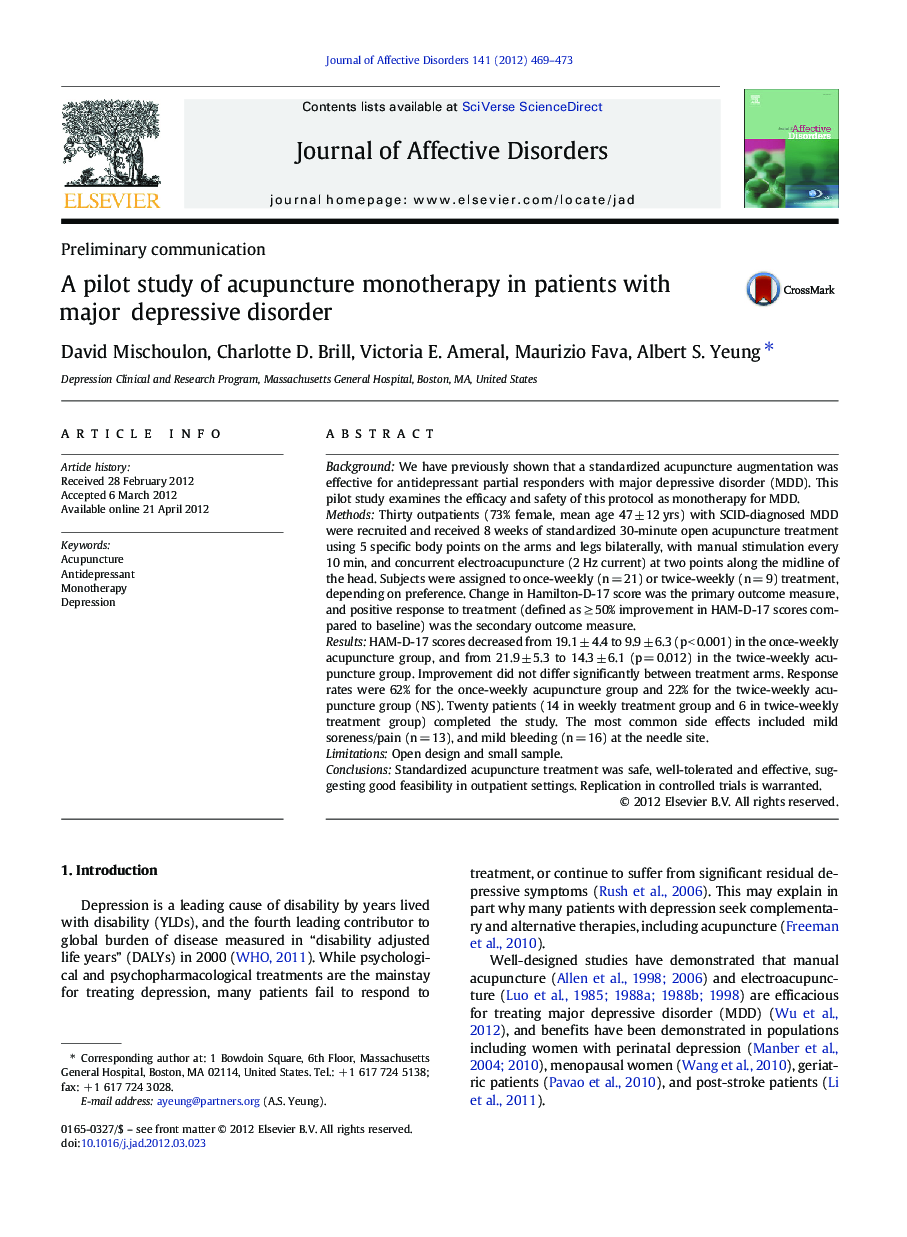| Article ID | Journal | Published Year | Pages | File Type |
|---|---|---|---|---|
| 4186252 | Journal of Affective Disorders | 2012 | 5 Pages |
BackgroundWe have previously shown that a standardized acupuncture augmentation was effective for antidepressant partial responders with major depressive disorder (MDD). This pilot study examines the efficacy and safety of this protocol as monotherapy for MDD.MethodsThirty outpatients (73% female, mean age 47 ± 12 yrs) with SCID-diagnosed MDD were recruited and received 8 weeks of standardized 30-minute open acupuncture treatment using 5 specific body points on the arms and legs bilaterally, with manual stimulation every 10 min, and concurrent electroacupuncture (2 Hz current) at two points along the midline of the head. Subjects were assigned to once-weekly (n = 21) or twice-weekly (n = 9) treatment, depending on preference. Change in Hamilton-D-17 score was the primary outcome measure, and positive response to treatment (defined as ≥ 50% improvement in HAM-D-17 scores compared to baseline) was the secondary outcome measure.ResultsHAM-D-17 scores decreased from 19.1 ± 4.4 to 9.9 ± 6.3 (p < 0.001) in the once-weekly acupuncture group, and from 21.9 ± 5.3 to 14.3 ± 6.1 (p = 0.012) in the twice-weekly acupuncture group. Improvement did not differ significantly between treatment arms. Response rates were 62% for the once-weekly acupuncture group and 22% for the twice-weekly acupuncture group (NS). Twenty patients (14 in weekly treatment group and 6 in twice-weekly treatment group) completed the study. The most common side effects included mild soreness/pain (n = 13), and mild bleeding (n = 16) at the needle site.LimitationsOpen design and small sample.ConclusionsStandardized acupuncture treatment was safe, well-tolerated and effective, suggesting good feasibility in outpatient settings. Replication in controlled trials is warranted.
